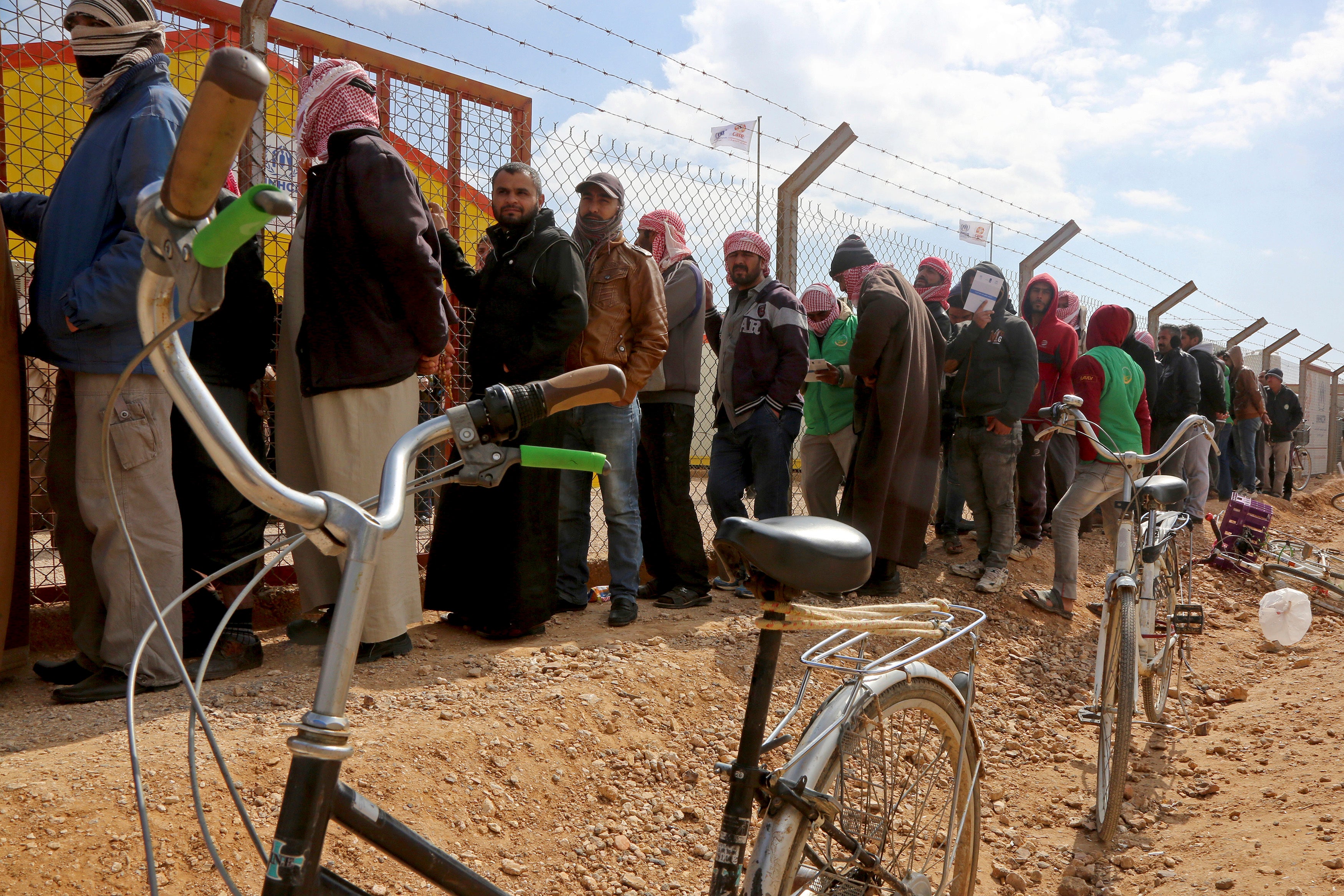UN agency slashes cash aid to Syrian refugees in Jordan, raising the alarm on its funding crunch
The United Nations food agency says it will reduce monthly cash aid for almost 120,000 Syrian refugees living in camps in Jordan

The United Nations food agency said Tuesday it will reduce monthly cash aid for 120,000 Syrian refugees living in camps in Jordan because of what it described as an “unprecedented funding crisis.”
Jordan is a country of 11 million people and hosts some 1.3 million refugees from Syria, most of them living in camps across the kingdom. Nearly half of the refugees in the two largest camps in Jordan — Zaatari and Azraq — rely on the cash aid.
Jordanian officials have warned that the kingdom cannot fill the gap left by international donors.
The announcement by the World Food Program comes after the agency said last week it would gradually cut off 50,000 refugees in Jordan from its assistance altogether. The program had initially covered 465,000 refugees.
After the complete cutoff, almost 30% of refugees still left in the program will get reduced cash amounts. The monthly cash allowance would be reduced from $32 to $21, WFP said.
U.N. agencies and international humanitarian organizations for years have struggled to reach budgetary requirements for their assistance in Syria and for Syrian refugees in neighboring countries due to donor fatigue, the economic impact of the coronavirus pandemic and Ukraine’s war with Russia.
Though Syrian President Bashar Assad’s government was able to reclaim large swaths of territory with the help of allies Russia and Iran, the crisis in the war-torn country remains in a stalemate.
“As funding dries up, our hands are tied,” said Alberto Correia Mendes, the WFP representative for Jordan.
The agency said that even with the current cuts, it still faces a funding shortfall of some $41 million and may have to impose additional measures.
Funding cuts have also impacted millions of Syrian refugees in Lebanon and Turkey, where anti-refugee rhetoric and calls for mass deportations have surged in light of economic and political turmoil.
Syria’s uprising turned civil war, now in its 13th year, has killed nearly half a million people and displaced half of its prewar population of 23 million.
Jordanian Foreign Minister Ayman Safadi spoke up about the kingdom’s inability to fill in funding gaps at this year’s annual donor conference on Syria in Brussels last June. Last week, he warned again that “refugees will suffer”.
“This is not on Jordan. It is on those who are cutting support,” he said. “Providing dignified lives to refugees is a global responsibility. It is not ours alone as host country.”
Dominik Bartsch, the U.N. refugee agency's representative to Jordan, said the aid rollback has forced agencies to look only to the most vulnerable families, leaving many in need without assistance.
“There is an imminent risk that the situation is sliding back into a humanitarian crisis with serious consequences for refugees and host communities,” Bartsch said.
In a visit to Damascus on July 4 where he met Assad, Safadi called on investment into Syria's battered infrastructure to speed up voluntary refugee returns. Jordan has also spearheaded regional talks with Damascus to reach a solution to end the conflict.
Western countries still sanction Syria, including for alleged war crimes and involvement in the drug trade, and have not endorsed restoring ties with Assad or funding reconstruction, as Arab countries have.
Subscribe to Independent Premium to bookmark this article
Want to bookmark your favourite articles and stories to read or reference later? Start your Independent Premium subscription today.
